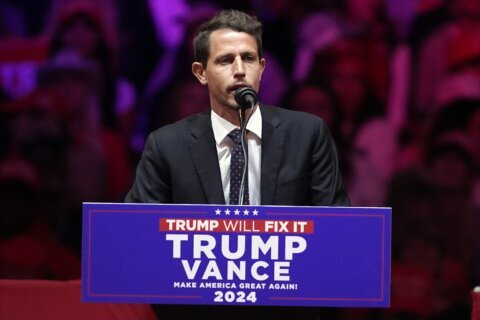The interview is just one piece of the puzzle when it comes to MBA admissions, but experts say it’s an important one — especially at some top programs. In many cases, it’s the first personal interaction between applicants and admissions officers and it’s where schools learn about a candidate’s maturity, work experience, professional ambitions and work ethic.
“We look at the application in its entirety, but I kind of think for us the interview is probably the most critical piece,” says Kevin Bender, executive director for MBA enrollment management and recruiting at Wake Forest University School of Business in North Carolina. “The interview, to me, is where we bring the applicant to life. They have the opportunity to hit a home run, a foul ball or strike out.”
The questions that candidates are asked in MBA interviews vary among schools, but generally interviewers want to know why someone is pursuing an MBA, why they’re interested in that particular school and why this is the right time to earn the degree. The questions aren’t intended to trip applicants up and the interviews are typically meant to be informal and conversational, experts say.
However, candidates may still struggle for a variety of reasons. If that happens, experts say it’s usually not a deal-breaker and there are ways to limit the damage done by a bad interview. In some cases, how a candidate responds after a fumbled MBA interview may end up helping their application.
[Avoid 4 Surprising Application Mistakes Prospective MBAs Make]
“I think how an applicant responds to a bad situation is a reflection of their self-awareness,” says Susan Cera, MBA admissions director at Stratus Admissions Counseling. “So much of what business schools are trying to assess is that emotional intelligence.”
Here are three things experts say MBA candidates should do if they feel their interview went poorly.
Ask for a Redo
MBA programs are typically quick to offer grace to candidates who struggled in an interview, experts say. That’s especially true in cases where candidates have previously built a relationship with the school and admissions officers through webinars, information sessions and in-person campus visits, says Jennifer Crandall, executive director of admissions at the Simon Business School at the University of Rochester in New York.
“That allows for that backstory to be more of the narrative for a candidate than necessarily a poor performance in an interview,” Crandall says. “That allows for it to basically be like a cheerleading section within the school to say ‘that’s not the person that I met in advance’ and that this is actually who they are.”
If such a relationship hasn’t been established, candidates should still feel comfortable reaching out to the admissions office and asking to redo the interview. It’s best to do this tactfully, as any form of communication is a chance for schools to further evaluate candidates, experts say.
“I think just reaching right out and in the first sentence of a message saying, ‘I really screwed that up. Can I have another chance?’ would probably be seen as a little bit forward,” Crandall says, adding that candidates should instead send an email thanking the school for the opportunity to interview and mentioning anything they’d like to highlight differently.
“Giving that context of what they think they might have flubbed is probably best to showcase instead of just saying, ‘hey, can I have a second chance?'”
[READ: What an MBA Degree Is and What You Need to Know.]
Admissions officers at Wake Forest can accommodate another interview within 24 hours, Bender says. In some cases, they may be able to do it the same day. Cera says other schools operate similarly, so it’s best to reach out as soon as possible after the initial interview.
“They are often writing up their notes and submitting them to an admissions committee within a day or so of an interview, so you can’t reflect on it over the course of a week and then write something,” Cera says. “You need to pretty quickly respond and send an update.”
Realize What Was Out of Your Control
Sometimes a poor interview may not be the candidate’s fault, Cera says. Problems can arise with technology or the interviewers.
For example, some schools, such as the Haas School of Business at the University of California, Berkeley and the Carey Business School at Johns Hopkins University in Maryland, have started using an automated interview platform through Kira Talent. Some schools are migrating to this platform to remove bias from the interview process, Cera says, but students may still run into issues.
Through this platform, interviewees have a limited time to answer questions via video and those who struggle to finish in the allotted time may see their responses cut off. One mistake like that — or a technological glitch with the platform or a candidate’s device — could derail the rest of the interview, Cera says.
In most cases like these, schools will be gracious, but Cera encourages candidates to practice as much as possible so they’re familiar with the platform before the interview.
In-person interviews may go poorly because the interviewer was ill-prepared, late to the interview, distracted or not asking good questions, she says. This could cause an interviewee to feel distracted or that they’re not in the best environment to answer questions.
In other cases, an interviewer may provide insufficient information to the admissions committee. Cera recalls a time when a B-school initiated another interview with an applicant after noticing the interviewer hadn’t sent enough information.
“This individual interviewed again and within a week was accepted,” she says.
[How to Get Accepted to Multiple Top Business Schools]
Relax and Regroup
Applicants can feel embarrassed and dejected when it seems obvious that an interview went badly. But Crandall says many applicants who think they did poorly actually did well, so it’s important to take a little time to reflect without overthinking.
“People are much harder on themselves than they necessarily should be,” she says. “But this is their future and their lives that they’re taking in their hands, so everything seems a bit amplified.”
Experts say MBA hopefuls can rest assured that even a weak interview performance won’t necessarily have a lasting effect on an application — especially if schools allow a redo. When MBA applicants score poorly on the GMAT or the GRE and retake them, Wake Forest disregards the poor scores and focuses only on the improved results. The same is true for a bad interview, Bender says.
“Everybody has a bad day,” Bender says. “If somebody bombs an interview, we’re going to throw that away. We’ll put it in the trash and we’ll reevaluate based on the new conversation. It takes a lot of humble pie, which we treasure. We want humble, hungry students.”
Searching for a grad school? Get our complete rankingsof Best Graduate Schools.
More from U.S. News
How to Decide if an MBA Is Worth it
How an MBA Degree Can Help You Become a Management Consultant
4 Questions to Ask Yourself Before Applying to B-School
3 Ways to Recover From a Bad MBA Interview originally appeared on usnews.com







